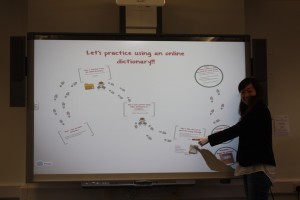OpAL, Open Access to Languages is a project born to make languages accessible to students of modern foreign languages within the context of the UK education. With this project we aim at providing language learning support materials to those who have already an understanding of how languages work but may feel rusty or still insecure, and also to those who have never had experience of learning a second language. OpAL at present is divided into four modules: Grammar and Grammaring, The “many” Parts of Language, Using a Bilingual Dictionary and Online Translation Tools.
The thinking behind the project is that in HE we have many students who feel put off in some areas of language learning (for example: grammar) therefore they don’t even attempt to learn a new language. Students may consider grammar boring, or of no use whatsoever to learn a second language. They may not even be familiar with the grammar of their own native language. In order to break down barriers, we aim at explaining the process that occurs when a learner starts learning the language. And to make the jump from theory to praxis accessible we have enrolled the help of students of languages. Our students are the ones creating materials to explain grammatical areas, or materials on how to use online tools such as dictionaries. From our point of view they have the experience of learning – we have the experience of teaching. Now it is their time to share and prove that language learning is not an area to be afraid of!
The materials students create and share are simple, accessible tools that represent and prove that understanding the mechanism underlying any language is not difficult. Moreover, understanding what the basic components of a language are, how to identify and use them appropriately, is an essential skill that will enable anybody to understand their own language better and to even feel capable to study a second, third or fourth language.
Happy language learning to all!


